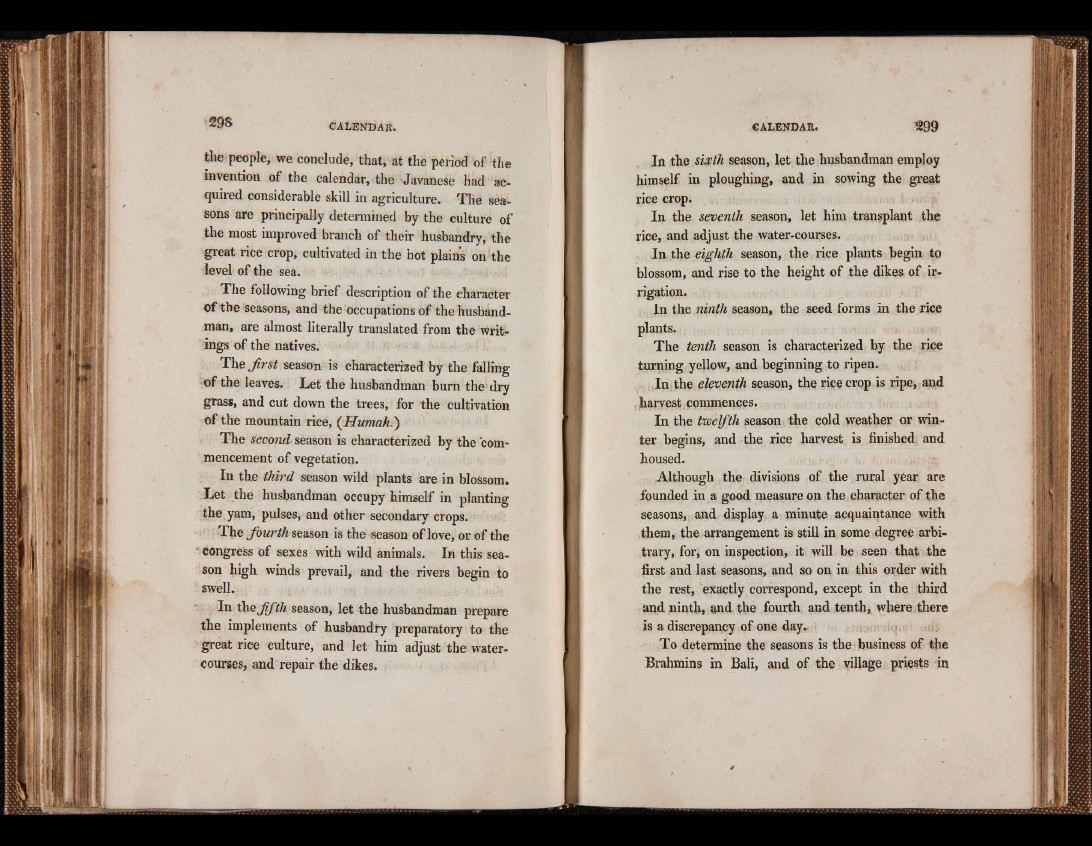
the people, we conclude, that, at the period of the
invention of the calendar, >the 'Javanese had acquired
considerable skill in agriculture. The seasons
are principally determined by the culture of
the most improved branch of their husbandry, the
great rice crop, cultivated in the hot plains on the
level of the sea.
The following brief description of the character
of the seasons, and the occupations of the husbandman,
are almost literally translated from the writings
of the natives.
The fir st season is characterized by the falling
of the leaves. Let the husbandman burn the dry
grass, and cut down the trees, for the cultivation
of the mountain rice, {Mumah.)
The secondreason is characterized by the commencement
of vegetation.
In the third season wild plants are in blossom.
Let the husbandman occupy himself in planting
the yam, pulses, and other secondary crops.
The fourth season is the season of love, or of the
' congress of sexes with wild animals. In this sea-
son high winds prevail, and the rivers begin to
swell.
In thqfifth season, let the husbandman prepare
the implements of husbandry preparatory to the
great rice culture, and let him adjust the watercourses,
and repair the dikes.
In the sixth season, let the husbandman employ
himself in ploughing, and in sowing the great
rice crop.
In the seventh season, let him transplant the
rice, and adjust the water-courses.
In the eighth season, the rice plants begin to
blossom, and rise to the height of the dikes of irrigation.
In the ninth season, the seed forms in the rice
plants.
The tenth season is characterized by the rice
turning yellow, and beginning to ripen.
In the eleventh season, the rice crop is ripe, and
harvest commences.
In the twelfth season the cold weather or winter
begins, and the rice harvest is finished and
housed.
Although the divisions of the rural year are
founded in a good measure on the character of the
seasons, and display a minute acquaintance with
them, the arrangement is still in some degree arbitrary,
for, on inspection, it will be seen that the
first and last seasons, and so on in this order with
the rest, exactly correspond, except in the third
and ninth, and. the fourth and tenth, where there
is a discrepancy of one day.
To determine the seasons is the business of the
Brahmins in Bali, and of the village priests in